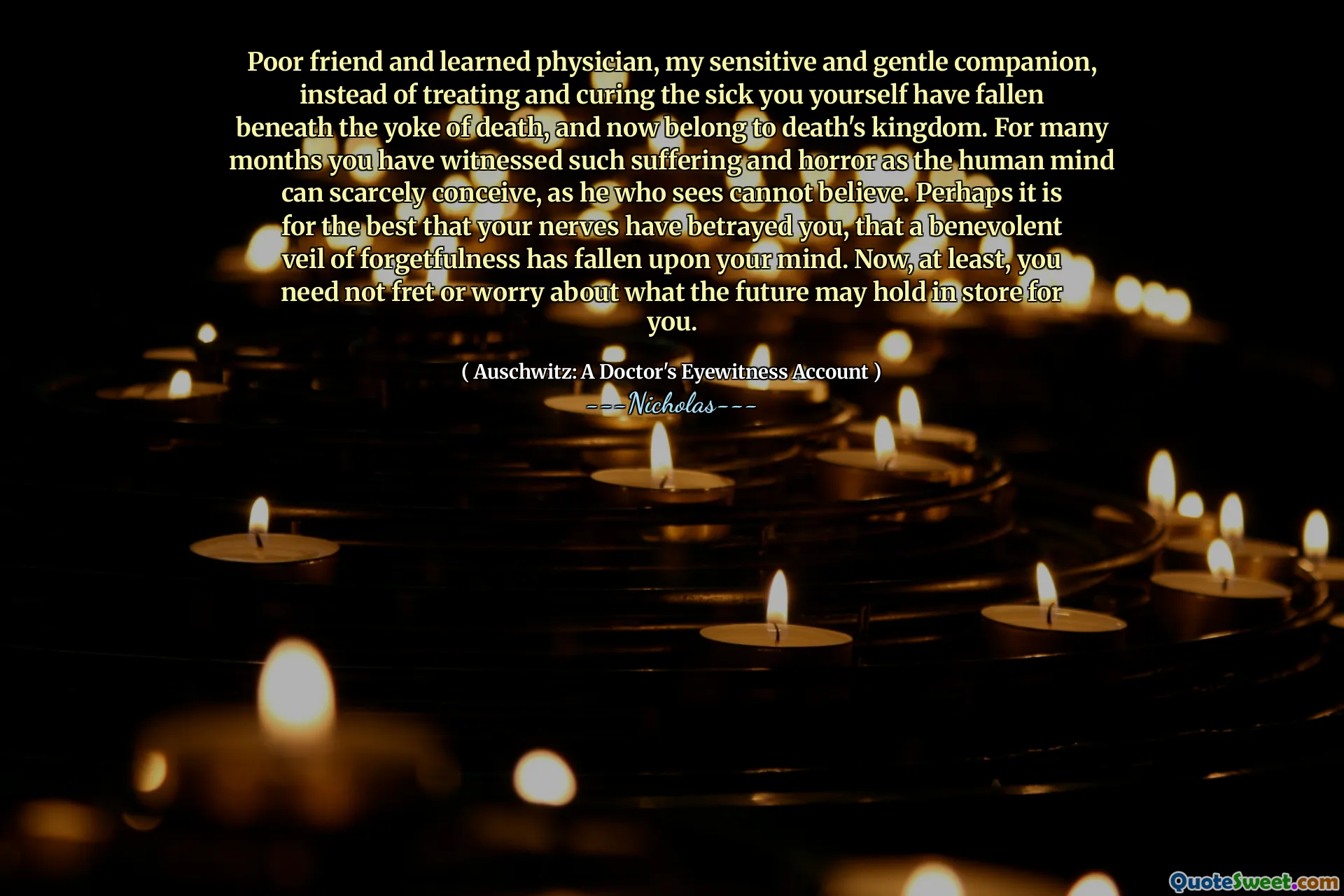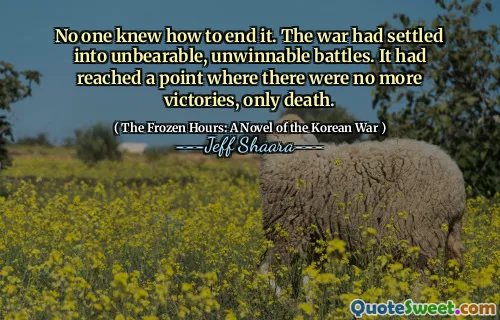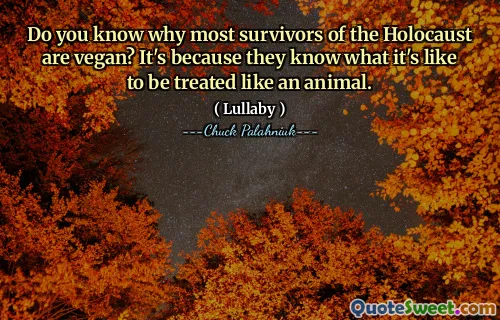
Poor friend and learned physician, my sensitive and gentle companion, instead of treating and curing the sick you yourself have fallen beneath the yoke of death, and now belong to death's kingdom. For many months you have witnessed such suffering and horror as the human mind can scarcely conceive, as he who sees cannot believe. Perhaps it is for the best that your nerves have betrayed you, that a benevolent veil of forgetfulness has fallen upon your mind. Now, at least, you need not fret or worry about what the future may hold in store for you.
This quote captures a poignant moment of vulnerability and tragedy, illustrating the profound psychological and emotional toll borne by those who witness intense human suffering first-hand. Addressed to a “poor friend and learned physician,” it evokes imagery of a figure once dedicated to healing now overwhelmed and ultimately claimed by death itself. The words reflect on the irony that someone who was once a healer has succumbed to the very forces they sought to combat, revealing a deeply human truth about the limits of endurance against relentless trauma.
There is an underlying sympathy in the tone, recognizing the friend’s condition not as a failure but as a protective retreat—"a benevolent veil of forgetfulness"—which spares him from an unbearable future. This suggests a form of psychological escape from traumatic reality, a coping mechanism that defies simple judgment. The devastating context where "suffering and horror" go beyond comprehension further highlights the brutal environment in which this physician lived and worked, possibly under war or genocide conditions as seen in the book “Auschwitz: A Doctor's Eyewitness Account.”
Overall, the excerpt poignantly reflects on human fragility, the heavy burden of bearing witness, and the complex interplay between memory, trauma, and survival. It invites deep reflection on the costs of suffering endured by those who serve others in the most harrowing circumstances and reminds us of the often invisible wounds carried by caregivers themselves.




